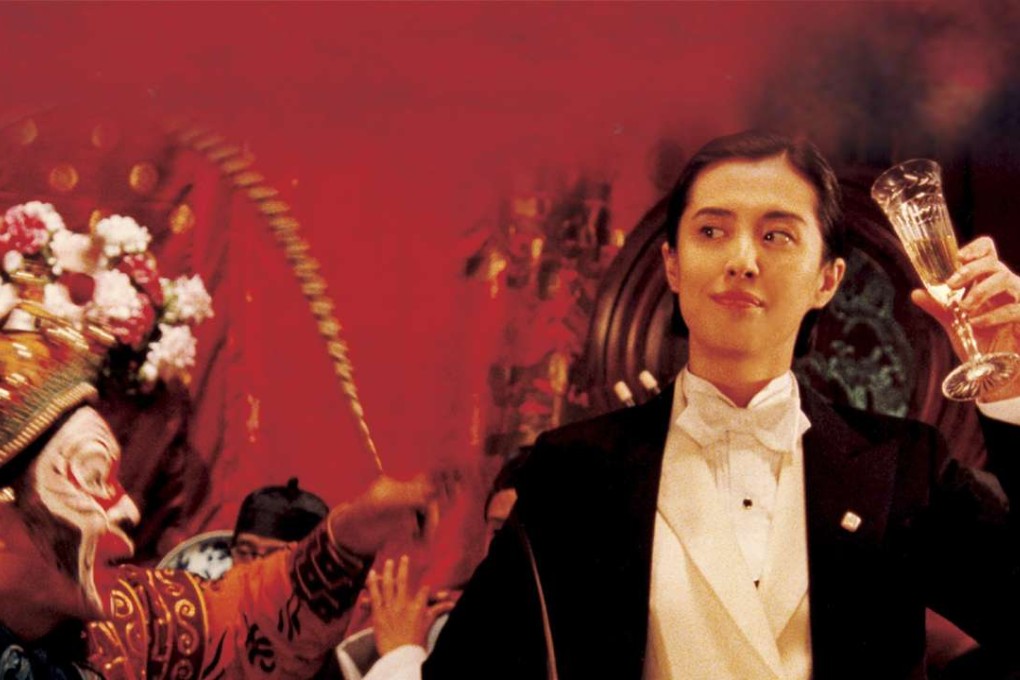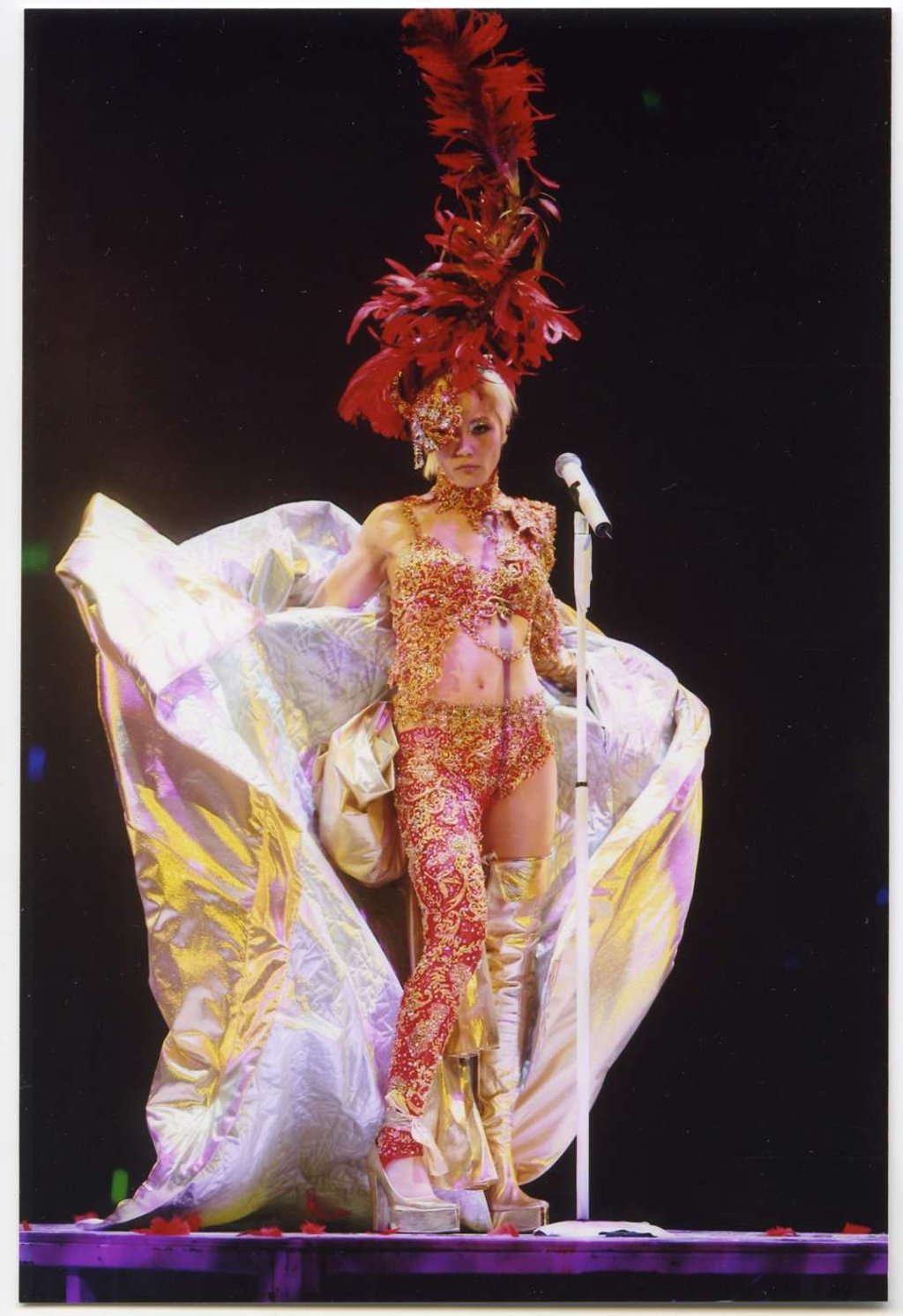When boys were girls and girls were boys: Hong Kong popular culture's blurring of gender roles celebrated
Canto-pop godfather Roman Tam’s peacock feather gown, Anita Mui’s androgynous outfits, Yonfen's films and Leslie Cheung’s red Manolo Blahniks – M+ show explores sexual ambiguity in Canto-pop and film

It was probably pure chance that an exhibition celebrating gender ambiguity in Hong Kong opened so soon after the chairman of the Equal Opportunities Commission paid homage to the female sex by saying that he expected his daughter, not his son, to look after him in his old age, and that women were better at housework.
But whether kismet or karma, it adds piquancy to the M+ show, which has opened to coincide with Art Basel Hong Kong.

“When even our EOC chairman promotes gender stereotypes in 2017, when Hong Kong society still insists there can be no blurring between men and women, we have to do more to point out the blurriness,” says Chow Yiu-fai, an adviser to the curators of the Ambiguously Yours exhibition and a well-known Canto-pop lyricist.
The exhibition is the first by M+ to focus on Hong Kong popular culture and there couldn’t have been a cheekier response to the comments made on International Women’s Day by the gaffe-prone Alfred Chan Cheung-ming: it is all about boys acting like girls, girls acting like boys and just how much the public love it.